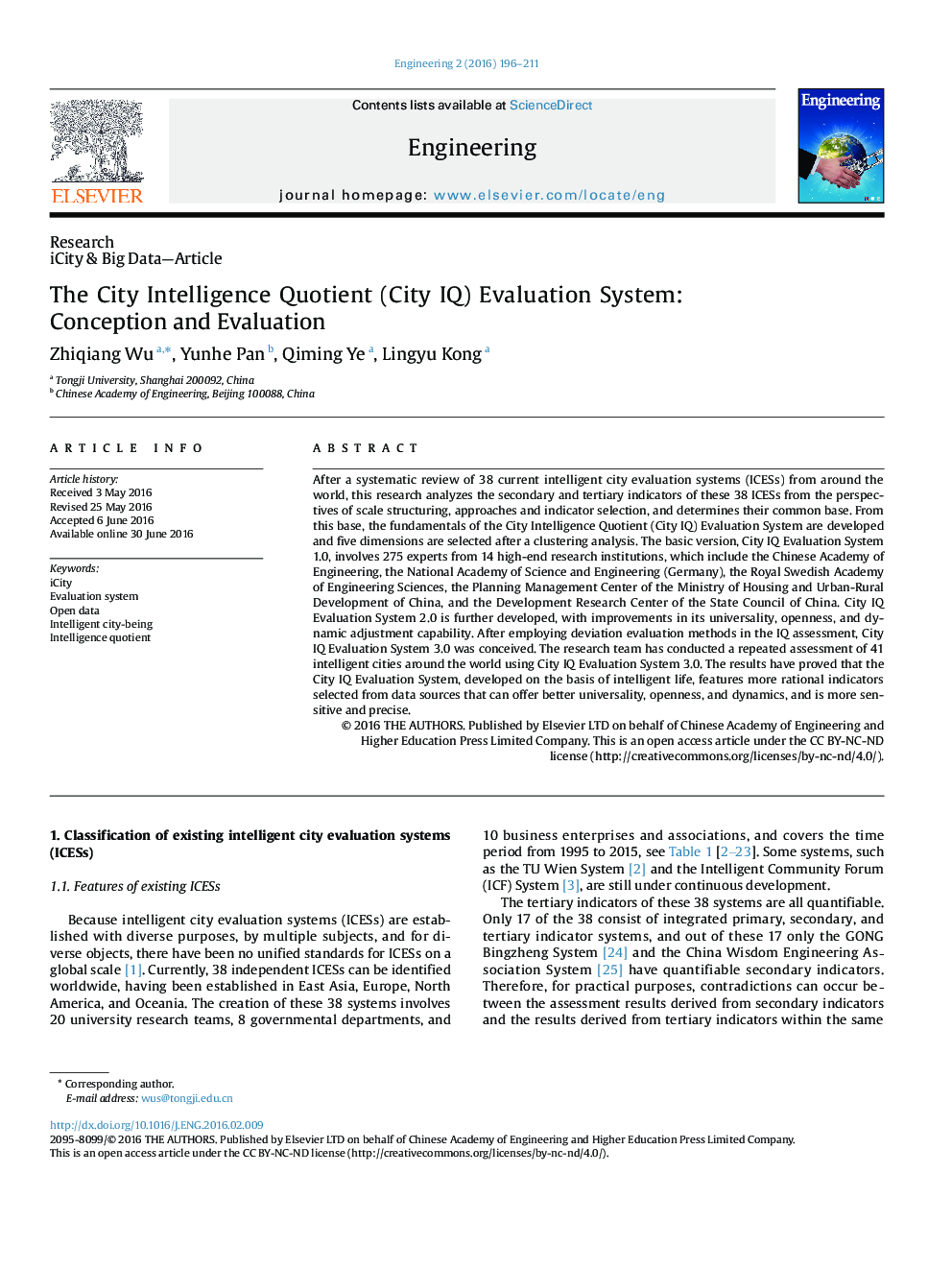| Article ID | Journal | Published Year | Pages | File Type |
|---|---|---|---|---|
| 478808 | Engineering | 2016 | 16 Pages |
ABSTRACTAfter a systematic review of 38 current intelligent city evaluation systems (ICESs) from around the world, this research analyzes the secondary and tertiary indicators of these 38 ICESs from the perspectives of scale structuring, approaches and indicator selection, and determines their common base. From this base, the fundamentals of the City Intelligence Quotient (City IQ) Evaluation System are developed and five dimensions are selected after a clustering analysis. The basic version, City IQ Evaluation System 1.0, involves 275 experts from 14 high-end research institutions, which include the Chinese Academy of Engineering, the National Academy of Science and Engineering (Germany), the Royal Swedish Academy of Engineering Sciences, the Planning Management Center of the Ministry of Housing and Urban-Rural Development of China, and the Development Research Center of the State Council of China. City IQ Evaluation System 2.0 is further developed, with improvements in its universality, openness, and dynamic adjustment capability. After employing deviation evaluation methods in the IQ assessment, City IQ Evaluation System 3.0 was conceived. The research team has conducted a repeated assessment of 41 intelligent cities around the world using City IQ Evaluation System 3.0. The results have proved that the City IQ Evaluation System, developed on the basis of intelligent life, features more rational indicators selected from data sources that can offer better universality, openness, and dynamics, and is more sensitive and precise.
